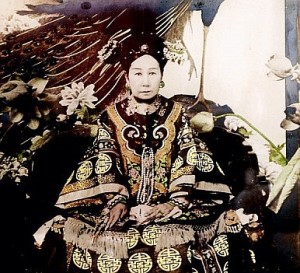 Jung Chang’s 2013 release, now available as an e-book, reflects on one of modern China’s most influential figures.
Jung Chang’s 2013 release, now available as an e-book, reflects on one of modern China’s most influential figures.
By Oliver Stuenkel
March 09, 2015
The Manchu Empress Dowager Cixi (1835–1908) is generally thought of as a conservative figure in Chinese history, incapable of defending China’s interests in the second half of the 19th century, when China lost its position as the world’s largest economy.
Against this broad consensus stands Jung Chang’s lively biography, first published in 2013 and now available as an e-book, that depicts Cixi (pronounced “Tseshi”) as quite the opposite. Chang argues that Cixi, the most important woman in Chinese history, “brought a medieval empire into the modern age.” Under Cixi’s rule, China built its first railroads (the Beijing-Canton railroad remains a key artery in today’s economy), installed telegraphs, introduced electricity, steam boats, modern mining, and newspapers, established the state bank, and promoted freedom of religion.
The constitutional system Cixi initiated, Chang writes, included modern laws — commercial, civil, criminal, and judicial, and the establishment of law schools. In the early 20th century, she allowed women to appear in public, abolished foot binding, lifted the ban on Han-Manchu intermarriage, and decreed that girls should be educated. Indeed, Cixi is depicted as unusually wise for her time and age. The author writes that “instinctively she seems to have known that a government needs dissenting voices,” turning her into a sort of Chinese counterpart of India’s sage Mughal Emperor Akbar, who promoted religious tolerance during his long reign in the 16th and 17th century.
Contrary to her predecessor, Cixi believed that trade with the West would strengthen China. In a courageous move, she employed a large number of foreigners in the civil service to modernize the administrative structures. She also tried to introduce science into China’s school system, a move that required hiring Western teachers. She promoted Hsu Chi-she, the first scholar to argue that China was not the center of the world, but just one of many countries. Unprecedented in China, she urged her temporary successor, Emperor Guangxu, to learn English. All these reforms took place against the resistance of a conservative establishment that continuously plotted against her and sought to remove foreigners from Chinese territory.
The book cites the diaries of the first Chinese officials who traveled to the West in the 19th century, the majority of whom were deeply impressed by democracy and the technological progress they saw. “If we are able to do what they are doing, there is no question that we, too, can be rich and strong,” one wrote. Cixi tried to use these accounts to convince China’s elite that change was necessary. It was under her that formal Chinese diplomacy emerged. Interestingly enough, an early diplomatic challenge — aside from the rise of Japan — was to help improve the conditions of Chinese slaves in Cuba and Peru.
Throughout the book, Chang’s admiration for Cixi strikes the reader as somewhat exaggerated. “Never small-minded, she would invariably focus on the bigger picture”, the author writes. Yet at the same time, the book described in detail how, after not feeling sufficiently revered, the Empress issued a decree that all her advisors would have to kneel in her presence — not exactly a sign of open-mindedness (even though she ended the practice later in her reign). When a palace eunuch made a remark that offended her, she had him strangled to death. When she discovered a plan to assassinate her, she not only had the plotters beheaded, but also two innocent bystanders, to avoid having the case turn public.
